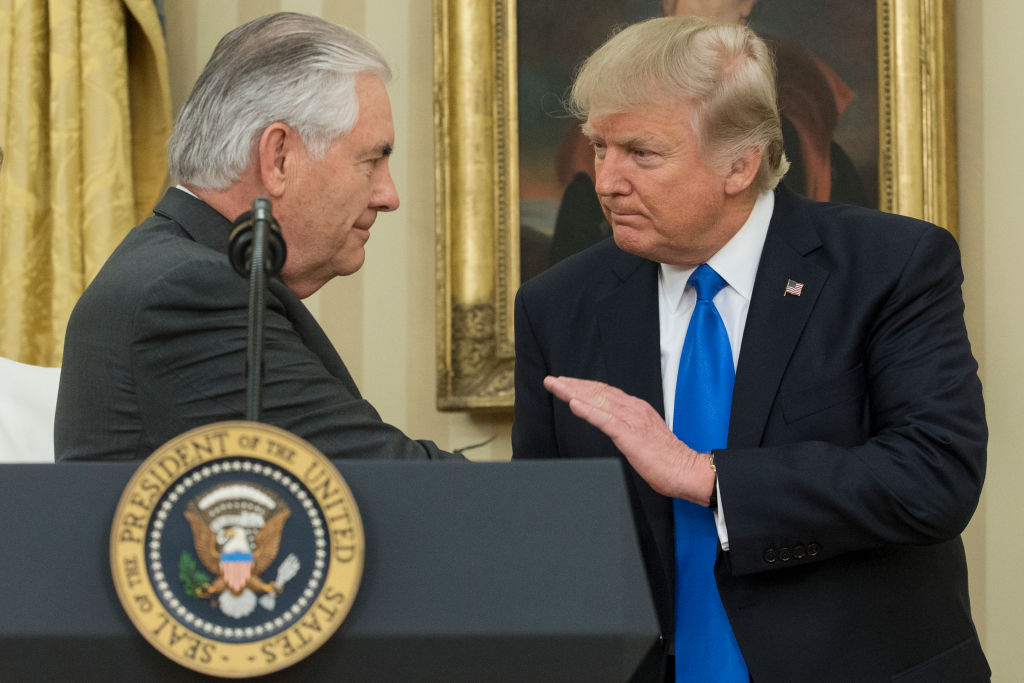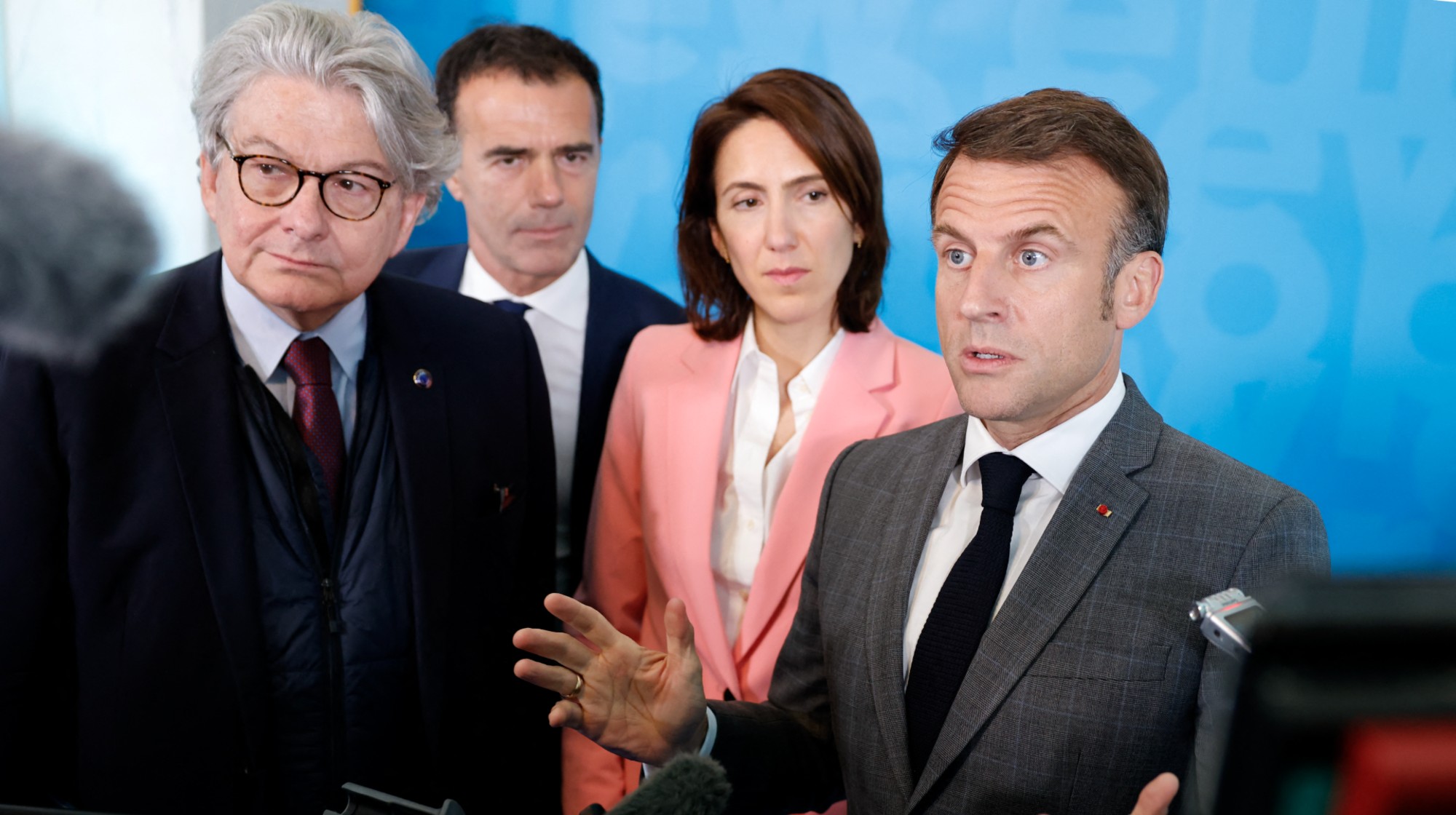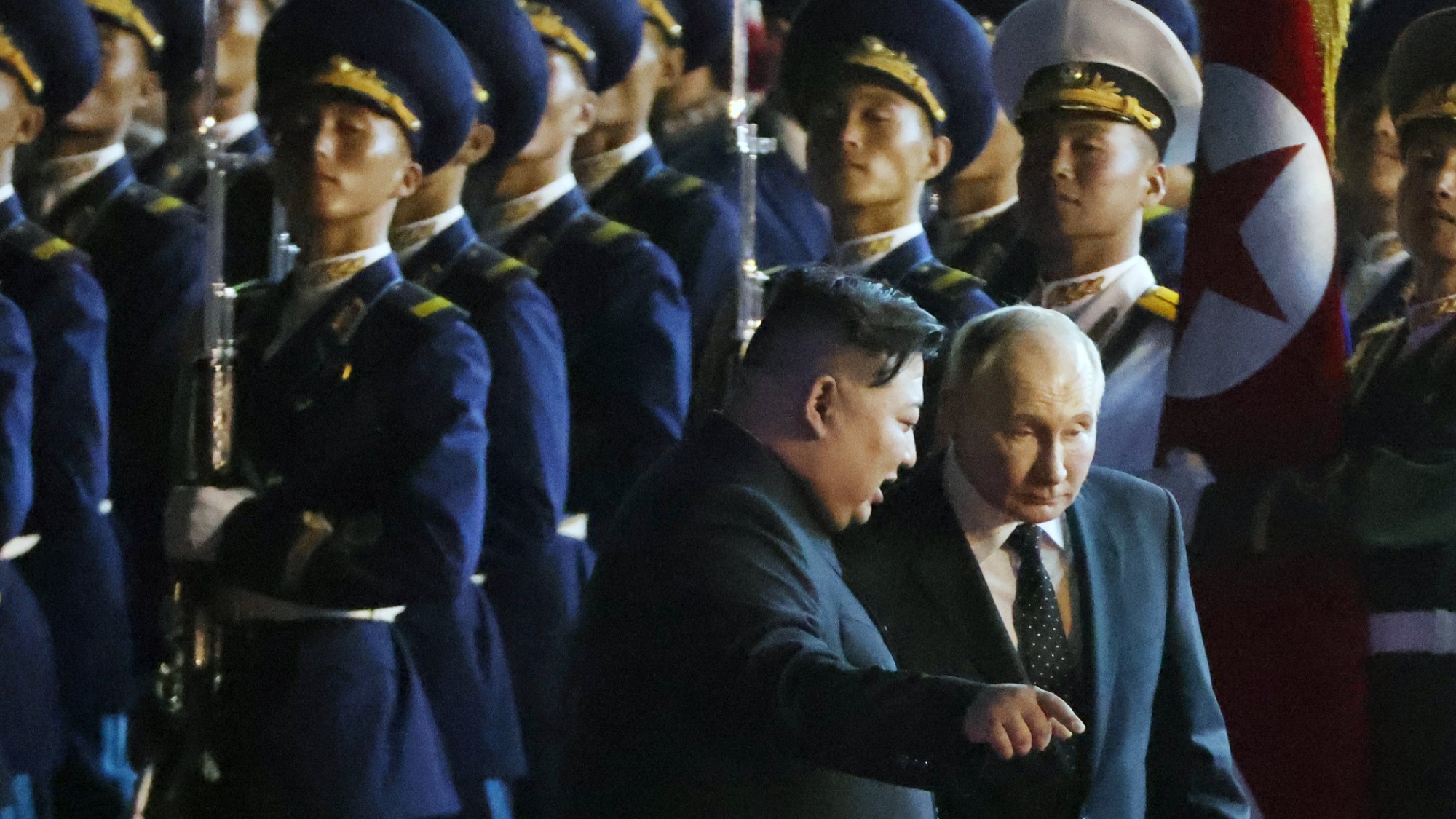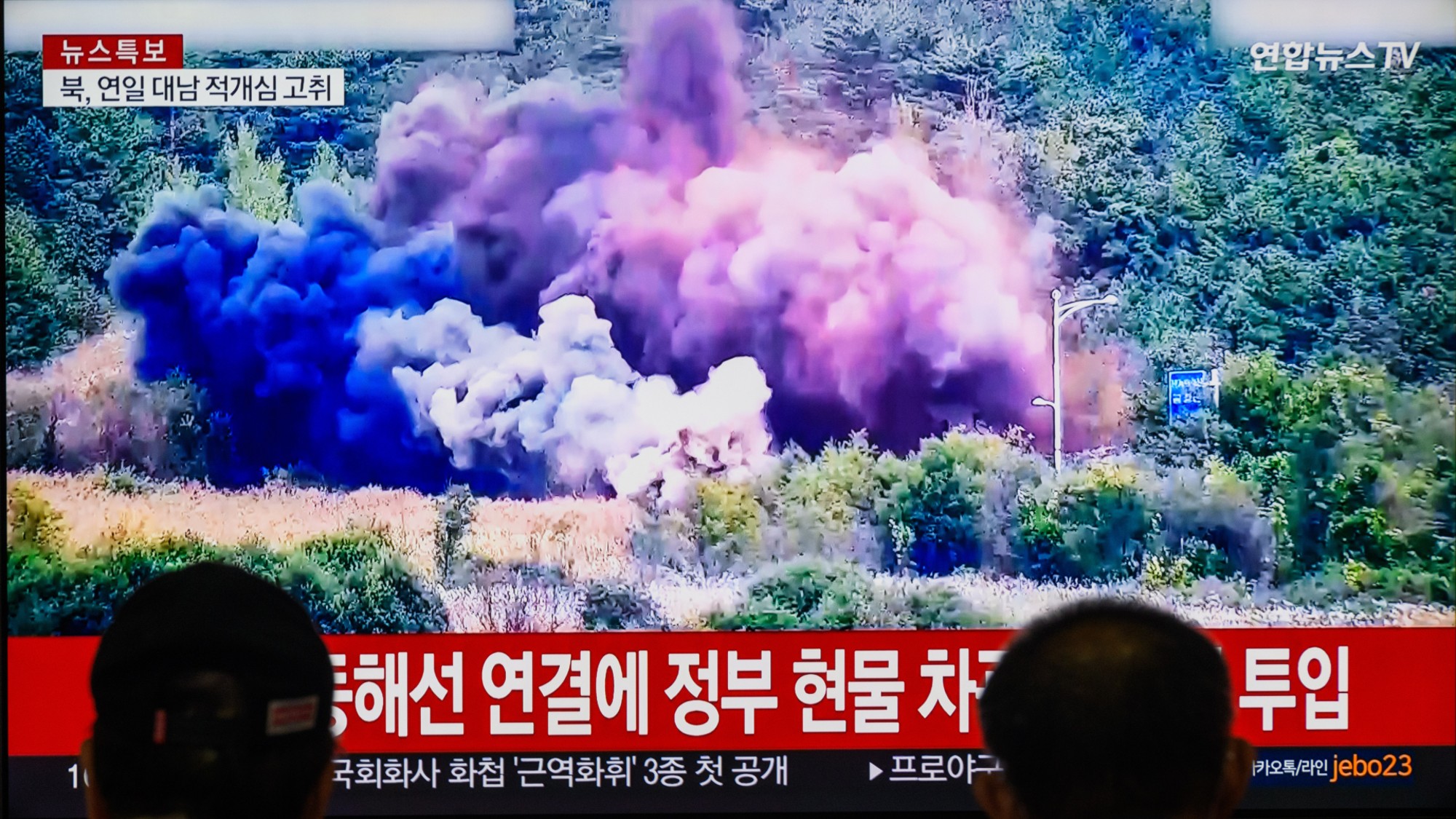Is Trump playing 'bad cop' on North Korea to Rex Tillerson's 'good cop'? He shouldn't, experts say.


On Sunday, President Trump publicly undercut Secretary of State Rex Tillerson, who is in Asia, by tweeting that he should stop "wasting his time trying to negotiate with Little Rocket Man," North Korea's Kim Jong Un, adding: "Save your energy Rex, we'll do what has to be done!" A few hours later, he tweeted: "Being nice to Rocket Man hasn't worked in 25 years, why would it work now? Clinton failed, Bush failed, and Obama failed. I won't fail." Kim, 33, assumed power in 2011, so Trump was presumably including his father and grandfather as "Rocket Man."
There are several theories on Trump's motive for undercutting Tillerson and implying certain military action. Trump was "privately described by advisers as furious" at Tillerson for contradicting his public position on talks with Pyongyang, The New York Times reports, but Trump also "could be attempting his own version of Richard M. Nixon's 'madman' theory, casting himself as trigger-happy to bolster the bargaining power of his aides." Unfortunately, in this case, "a misreading of North Korea could result in an atmospheric nuclear test or an artillery barrage against Seoul," the Times notes, and "Kim likes to play madman as well."
Jonathan Swan at Axios recounts Trump's use of the "madman" theory, in a meeting where Trump told U.S. Trade Representative Robert Lighthizer not to tell Seoul his timeline for saving a free trade deal. "You don't tell them they've got 30 days," Trump reportedly said. "You tell them, 'This guy's so crazy he could pull out any minute.'"
The Week
Escape your echo chamber. Get the facts behind the news, plus analysis from multiple perspectives.

Sign up for The Week's Free Newsletters
From our morning news briefing to a weekly Good News Newsletter, get the best of The Week delivered directly to your inbox.
From our morning news briefing to a weekly Good News Newsletter, get the best of The Week delivered directly to your inbox.
There's also the related theory that Trump intended this "as a good-cop, bad-cop strategy, but the tweet is so over the top that it undercuts Tillerson," former CIA Korea analyst Sue Mi Terry tells the Times. Trump made a violent confrontation more likely when he ignored the advice from his national security aides and personalized the dispute with Kim, said The New Yorker's Evan Osnos. "By extending the taunts to his own secretary of state, Trump might imagine that he is playing the bad cop to Tillerson's good cop," but this "ham-fisted effort to make Pyongyang more pliable to Tillerson's entreaties" just gave Pyongyang reason to ignore Tillerson. "This is not a police procedural," Osnos adds.
A free daily email with the biggest news stories of the day – and the best features from TheWeek.com
Peter has worked as a news and culture writer and editor at The Week since the site's launch in 2008. He covers politics, world affairs, religion and cultural currents. His journalism career began as a copy editor at a financial newswire and has included editorial positions at The New York Times Magazine, Facts on File, and Oregon State University.
-
 Shots fired in the US-EU war over digital censorship
Shots fired in the US-EU war over digital censorshipIN THE SPOTLIGHT The Trump administration risks opening a dangerous new front in the battle of real-world consequences for online action
-
 What will the US economy look like in 2026?
What will the US economy look like in 2026?Today’s Big Question Wall Street is bullish, but uncertain
-
 Alaa Abd el-Fattah: should Egyptian dissident be stripped of UK citizenship?
Alaa Abd el-Fattah: should Egyptian dissident be stripped of UK citizenship?Today's Big Question Resurfaced social media posts appear to show the democracy activist calling for the killing of Zionists and police
-
 Did Trump just end the US-Europe alliance?
Did Trump just end the US-Europe alliance?Today's Big Question New US national security policy drops ‘grenade’ on Europe and should serve as ‘the mother of all wake-up calls’
-
 The North Korean troops readying for deployment in Ukraine
The North Korean troops readying for deployment in UkraineThe Explainer Third country wading into conflict would be 'the first step to a world war' Volodymyr Zelenskyy has warned
-
 What's happening at the North Korea border?
What's happening at the North Korea border?The Explainer Tensions rise as hermit kingdom blows up 'symbolic' roads after accusing Seoul of flying drones over Pyongyang
-
 How would we know if World War Three had started?
How would we know if World War Three had started?In depth Most of us probably won’t realise that we are in a global conflict – at first
-
 British warship repels 'largest Houthi attack to date' in the Red Sea
British warship repels 'largest Houthi attack to date' in the Red SeaSpeed read Western allies warn of military response to Iranian-backed Yemeni rebels if attacks on ships continue
-
 Houthi rebels claim Red Sea ship attacks
Houthi rebels claim Red Sea ship attacksspeed read Iran-backed Yemeni group vows to escalate aggression towards Israel-linked vessels in revenge for Gaza war
-
 Israel plans next phase of Gaza war as first hostages released
Israel plans next phase of Gaza war as first hostages releasedSpeed read After four-day ceasefire 'we will not stop' until destruction of Hamas, says Israel
-
 Mob storms Russian airport 'looking for Jews'
Mob storms Russian airport 'looking for Jews'Speed Read Plane from Israel surrounded by rioters chanting antisemitic slogans after landing in Russia's Dagestan region
